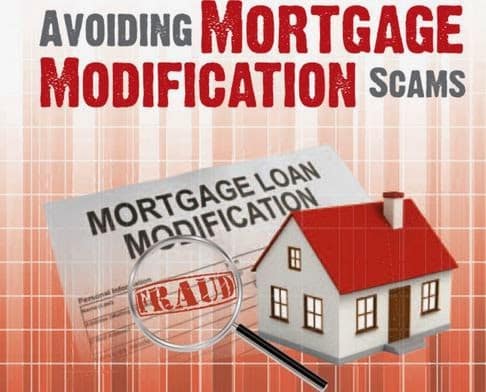In the digital age, homeowners find themselves increasingly targeted by financial scams, a trend that poses significant risks to their financial stability and peace of mind. These scams, sophisticated in their execution, range from promises of mortgage relief to outright attempts to steal property titles. By understanding the common tactics used by scammers and adopting preventative measures, homeowners can safeguard their assets against those looking to exploit the vulnerabilities inherent in the ownership and management of the property. This article sheds light on prevalent financial scams targeting homeowners, offering insights into recognizing and protecting against these nefarious activities.
The Loan Modification Scam

Scammers, exploiting homeowners struggling with mortgage payments, promise to negotiate better terms with lenders for a fee. These fraudulent actors often masquerade as legal professionals or financial advisors, offering false hope in exchange for upfront payments. Unfortunately, once the fee is paid, the promised services never materialize, leaving homeowners in a worse financial position. The devastating impact of these scams exacerbates financial stress and erodes trust in legitimate assistance programs.
To protect against such scams, homeowners are advised to seek loan modification services only from approved agencies or directly through their lenders. Legitimate services rarely, if ever, require upfront fees for loan negotiation. Additionally, homeowners should verify the credentials of any service provider and consult the Better Business Bureau or consumer protection agencies to ensure their legitimacy. Awareness and caution can serve as powerful shields against these deceptive practices.
The Foreclosure Rescue Scheme

Foreclosure rescue schemes prey on homeowners facing the loss of their homes, offering a financial lifeline in return for payment. Scammers promise to intercede with lenders to stop the foreclosure process, often asking for money upfront or even tricking homeowners into signing over the deed to their property. The cruel irony is that these homeowners, in their desperation, may be signing away their homes, believing they are securing their financial future.
The best defense against foreclosure rescue schemes is direct communication with the lender and consultation with certified housing counselors. These professionals can offer genuine advice and assistance, often at no cost. Homeowners should be wary of any individual or company that guarantees to stop the foreclosure process, especially those requesting payment upfront. Knowledge and skepticism are key to avoiding these devastating scams.
The Home Repair Scam

The home repair scam targets homeowners with offers of unsolicited repairs, exploiting the natural desire to maintain one’s home. Scammers, often posing as contractors, offer to perform work at a discounted rate, citing supposed issues they’ve noticed. These offers are frequently too good to be true. They may involve upfront payments for services that are never rendered or are of subpar quality, leaving homeowners out of pocket and with unresolved or exacerbated home issues.
Avoiding home repair scams requires diligence in vetting any contractor or repair service. Homeowners should seek multiple quotes, check references, and confirm the contractor’s licensing and insurance before agreeing to any work. Additionally, a healthy skepticism towards unsolicited offers and the insistence on contracts and receipts can protect against these opportunistic schemes.
The Property Tax Scam

In the property tax scam, homeowners are approached by individuals claiming they can reduce their property taxes through reassessment or appeal, typically for a fee. These scammers exploit the complexity and variability of property tax laws, offering services that are often unnecessary or fraudulent. Homeowners may end up paying for assistance that provides no real benefit or does not exist.
To combat this scam, homeowners should directly contact their local tax assessor’s office for accurate information about their property taxes and any potential for reassessment or appeals. Legitimate avenues for reducing property taxes are typically available directly through local government offices without third-party assistance. Educating oneself about the local property tax process is critical in avoiding this type of financial fraud.
The Rental Scam

Rental scams target homeowners looking to rent their properties and individuals searching for rental homes. Scammers create fake listings for real properties, often copying legitimate ads and changing the contact information. They then collect deposits or personal information from unsuspecting renters. On the other hand, homeowners may find their properties fraudulently listed, leading to confusion and potential legal issues.
Protection against rental scams starts with vigilance in monitoring one’s property listings and verifying the legitimacy of potential tenants or landlords. Homeowners should regularly check online listings for unauthorized postings of their property and use reputable rental platforms that offer verification processes. Renters should insist on seeing the property in person and confirm the landlord’s or property manager’s identity before making any payments.
The Mortgage Closing Scam

The mortgage closing scam occurs during the home buying process, where scammers, impersonating real estate agents, lawyers, or title company representatives, attempt to divert the closing costs to fraudulent accounts. They may hack into email accounts or create similar-looking email addresses to deceive homebuyers into transferring funds to the wrong account. This scam can result in significant financial loss at a critical point in the property purchase process.
To safeguard against this scam, homebuyers should verify all email communications through direct, secure channels, such as phone calls to known and trusted numbers. It’s also advisable to use secure, encrypted email services for financial transactions and to confirm the account details for any money transfers directly with the involved parties in person or via a verified phone call.
The Homebuyer Scam

Targeting eager homebuyers, this scam involves fake listings for properties that may not exist or are not for sale. Scammers create realistic ads for homes, collecting application fees, deposits, or personal information from potential buyers. These fraudulent listings can lead to financial loss and the theft of personal information, leaving homebuyers vulnerable to further exploitation.
Avoiding the homebuyer scam requires thorough research and verification of property listings. Buyers should work with reputable real estate agents and verify property details through official records. Additionally, any requests for money or personal information should be closely scrutinized and verified through independent channels before proceeding.
The Utility Scam

Utility scams involve fraudsters posing as representatives from utility companies, claiming that the homeowner owes a past due amount and threatening to disconnect services unless immediate payment is made. These scammers often demand payment through untraceable methods, such as prepaid cards or wire transfers, leaving homeowners with little recourse once the scam is discovered.
Protection against utility scams comes from recognizing the tactics used by scammers and verifying any claims directly with the utility company through official contact numbers. Homeowners should be wary of any demand for immediate payment, especially via unconventional payment methods, and should always check their utility accounts directly to verify any outstanding charges.
Securing Home and Hearth Against Financial Scams
Various financial scams increasingly target homeowners, each designed to exploit vulnerabilities for financial gain. Awareness and vigilance are paramount in recognizing and protecting against these fraudulent schemes. By understanding the common tactics used by scammers and taking proactive steps to verify and secure financial transactions related to homeownership, individuals can defend themselves and their properties against these predatory practices. The fight against financial scams targeting homeowners is ongoing, but through education and caution, homeowners can stand firm in the face of these threats.


